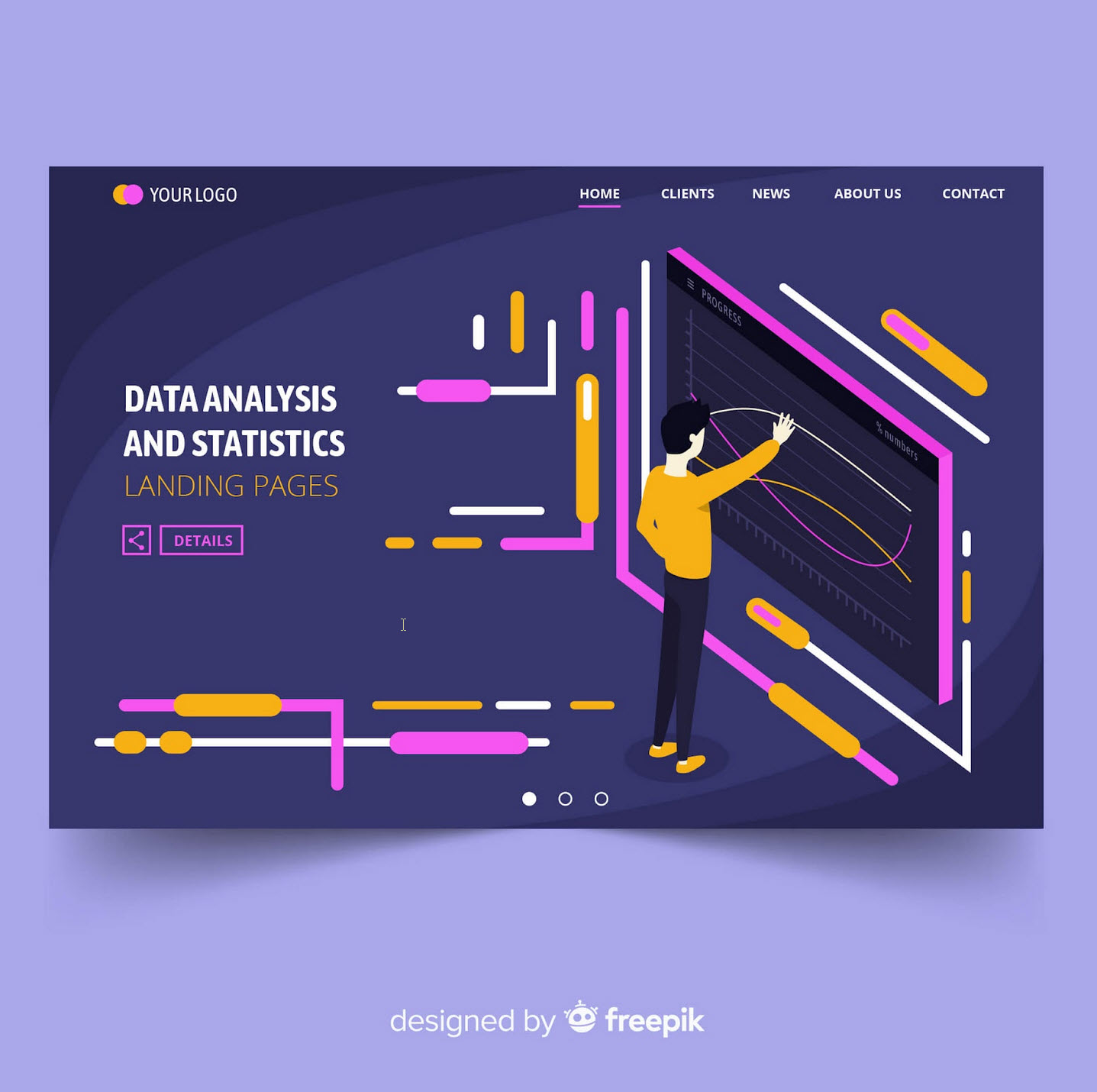Introduction to Web Scraping
Web scraping is a method of extracting information from websites. It is commonly used for data mining, data analysis, and data visualization. Web scraping can be done using various programming languages, including Python, Java, and C#. Commonly used libraries and frameworks for web scraping in Python include Beautiful Soup, Scrapy, and Selenium.
Web scraping can be used for a wide range of applications, such as price comparison, job listings, and sentiment analysis. However, it is important to be aware of the legal and ethical implications of web scraping, as some websites may prohibit or limit the use of automated scraping tools.
What is a Web Scraper?
Web scraper app is a program or script that extracts data from websites. A web scraper typically makes an HTTP request to a website’s server, and the server responds with the requested data in HTML format. The web scraper then parses the HTML to extract the relevant data and organize it in a structured format, such as a CSV or JSON file. Web scraping can be done using different libraries and frameworks, such as Beautiful Soup, Scrapy, and Selenium.
These libraries provide methods to navigate and search through the HTML, making it easier to extract the desired data. Some web scraping tools also provide features such as handling cookies and sessions, handling redirects, and handling proxy servers. Web scraping can be used for a wide range of applications, such as price comparison, job listings, and sentiment analysis.
However, it is important to be aware of the legal and ethical implications of web scraping, as some websites may prohibit or limit the use of automated scraping tools.
Why Use a Web Scraper?
There are several reasons why someone might use a web scraper:
- Data Gathering: Web scraping can be used to gather large amounts of data from websites for data analysis, data visualization, and other types of research.
- Price Comparison: Web scraping can be used to gather pricing information from multiple websites, making it easier to compare prices and find the best deal.
- Job Listings: Web scraping can be used to gather job listings from multiple websites, making it easier to find job opportunities.
- Sentiment Analysis: Web scraping can be used to gather data from social media platforms and other websites to analyze public opinion and sentiment about a particular topic.
- Lead Generation: Web scraping can be used to gather contact information from websites for lead generation.
- Monitoring: Web scraping can be used to monitor the prices, inventory and other information for a particular product on e-commerce sites to know when to buy or sell them.
It’s important to note that web scraping should be done in a legal and ethical manner, as some websites may prohibit or limit the use of automated scraping tools. It’s always a good idea to check the website’s terms of service before scraping, and to limit the number of requests made to the website to avoid overloading the server.

Types of Web Scraping Tools
There are several types of web scraping tools available, including:
- Browser Extension: Browser extensions are small software programs that can be added to a web browser to enhance its functionality. Some browser extensions, such as Web Scraper, can be used for web scraping.
- Desktop Software: Desktop software is a program that can be installed on a computer to perform web scraping tasks. Examples include Octoparse and Parsehub.
- Online Services: Online services are web-based platforms that provide web scraping capabilities without the need to install any software. Examples include Scrapinghub and Mozenda.
- Programming Libraries and Frameworks: Programming libraries and frameworks, such as Beautiful Soup and Scrapy, can be used to write custom web scraping scripts in a specific programming language, such as Python.
- APIs: Some websites provide APIs (Application Programming Interface) which allows developers to access their data in a structured way. In this case, instead of scraping the data, developers can use the API to get the data they need.
- Cloud-based Services: Cloud-based services provide web scraping capabilities on remote servers. This allows the user to perform web scraping tasks without the need to maintain their own infrastructure. Examples include Amazon Web Services and Google Cloud Platform.
It’s important to note that some websites that improve traffic scraping tools are more suited for certain types of scraping tasks than others. For example, browser extensions are well suited for simple scraping tasks, while programming libraries and frameworks are better suited for complex scraping tasks.
ParseHub
ParseHub is a web scraping and data extraction tool that allows users to extract data from websites without coding. It provides a point-and-click interface for users to select the data they want to scrape and automatically generates a script that can be run to extract the data. ParseHub can handle both static and dynamic websites, including those with JavaScript, AJAX, cookies, and sessions, making it suitable for scraping complex sites.
ParseHub allows users to extract data from multiple pages, automatically follow links and extract data from PDFs and images. It also allows users to schedule scraping tasks and export data in various formats such as CSV, Excel, JSON, and API.
ParseHub also provides an API that developers can use to integrate the tool into their own applications. It is suitable for both small and large scale data extraction projects, and can be used for a variety of purposes such as price comparison, market research, and data analysis.
BrightData (Luminati Networks)
BrightData is a web scraping and data extraction tool provided by Luminati Networks. It uses a network of residential IPs to bypass website blocking and provide access to data that would otherwise be inaccessible. This is particularly useful for scraping sites that use IP blocking or CAPTCHAs to prevent scraping.
BrightData allows users to extract data from websites without coding, providing a point-and-click interface to select the data they want to scrape and automatically generate a script that can be run to extract the data. It can handle both static and dynamic websites and can be used for a variety of purposes such as price comparison, market research, and data analysis.
BrightData is also suitable for organizations that needs to extract large amounts of structured data from websites on a regular basis, or want to automate their data collection process. It can export data in various formats such as CSV, Excel, and JSON.
In addition to BrightData, Luminati Networks also offers other services such as a residential proxy network and a data API for developers.
DataMiner
DataMiner is a web scraping and data extraction tool that allows users to extract data from websites without coding. It provides a point-and-click interface for users to select the data they want to scrape and automatically generates a script that can be run to extract the data. DataMiner can handle both static and dynamic websites and can be used for a variety of purposes such as price comparison, market research, and data analysis.
DataMiner provides a Chrome extension that allows users to extract data directly from their web browser. It also allows users to schedule scraping tasks and provides various options for handling cookies, headers, and proxy servers. It can export data in various formats such as CSV, Excel, and JSON.
DataMiner is easy to use, even for users without programming experience, and it can be a useful tool for anyone looking to extract data from websites quickly and easily.
Scraper
A scraper is a software tool or script that extracts data from websites. Scrapers can be used to collect information such as product prices, news articles, and social media posts. They can also be used to automate tasks such as filling out online forms or creating accounts on websites. Scrapers can be built using a variety of programming languages and frameworks, such as Python and JavaScript.
WebScraper
WebScraper is a web scraping tool that allows users to extract data from websites without coding. It provides a point-and-click interface for users to select the data they want to scrape and automatically generates a script that can be run to extract the data. WebScraper can handle both static and dynamic websites and can be used for a variety of purposes such as price comparison, market research, and data analysis.
WebScraper can extract data from web pages and export it in various formats such as CSV, Excel, and JSON. It also allows users to schedule scraping tasks and provides various options for handling cookies, headers, and proxy servers. It provides a browser extension for Chrome and Firefox, as well as a standalone application for Windows and Mac. Additionally, WebScraper also provides an API for developers to integrate with their own applications.
AvesAPI
AvesAPI is a web scraping and data extraction tool that allows developers to extract structured data from websites. It uses machine learning and natural language processing to automatically extract data and provides a set of APIs that developers can use to access the extracted data. AvesAPI can be used to extract data from e-commerce sites, news articles, job listings, and other types of web pages. It can return data in various formats such as JSON, XML, and CSV.
AvesAPI also offers features such as proxy rotation, CAPTCHA solving, and automatic handling of AJAX and JavaScript-rendered content. Additionally, AvesAPI also provides an analytics platform for monitoring the performance of the extraction process.
AvesAPI is suitable for developers and organizations that need to extract large amounts of structured data from websites on a regular basis, or want to automate their data collection process.
Octoparse
Octoparse is a web scraping software that allows users to extract data from websites without coding. It provides a point-and-click interface for users to select the data they want to scrape and automatically generates a script that can be run to extract the data. Octoparse can handle both static and dynamic websites and can be used for a variety of purposes such as price comparison, market research, and data analysis. It supports a wide range of websites and can export data in various formats such as CSV, Excel, and JSON.
Diffbot
Diffbot is a web scraping and data extraction tool that uses computer vision and natural language processing to automatically extract structured data from web pages. It can be used to extract data from e-commerce sites, news articles, job listings, and other types of web pages. It provides a set of APIs that developers can use to access the extracted data, which can be returned in a variety of formats such as JSON, XML, and CSV.
Diffbot API can extract data like product details, pricing, images, reviews, and more from e-commerce sites, and can also extract data from news articles, job listings, and other types of web pages. It also features a powerful machine learning algorithm to detect the structure of a page and extract the relevant data.
Diffbot provide additional services such as custom data extraction and page classification. Additionally, it also offers an analytics platform to monitor the performance of the extraction process.
Conclusion
In conclusion, there are many web scraping and data extraction tools available, such as Octoparse, Diffbot, WebScraper, AvesAPI, DataMiner, BrightData, and ParseHub. These tools allow users to extract data from websites without coding and provide a variety of features such as point-and-click interfaces, scheduling, data export options, and APIs for integration with other applications.
These tools can be used for a variety of purposes such as price comparison, market research, and data analysis. Each tool has its own unique features, so it is important to compare and choose the one that best suits your needs.

